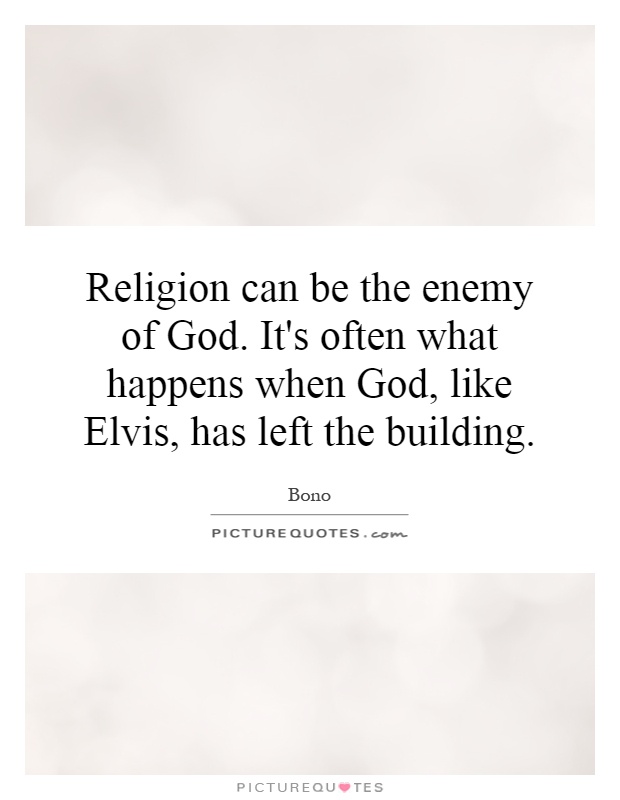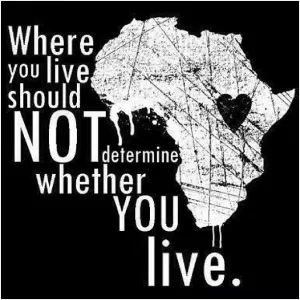Religion can be the enemy of God. It's often what happens when God, like Elvis, has left the building

Religion can be the enemy of God. It's often what happens when God, like Elvis, has left the building
Bono, the lead singer of the iconic rock band U2, is known for his thought-provoking lyrics and passionate advocacy for social justice issues. In the quote “Religion can be the enemy of God. It's often what happens when God, like Elvis, has left the building,” Bono is highlighting the dangers of religious institutions losing sight of the true essence of spirituality and becoming more focused on rules, rituals, and power.Bono's statement suggests that religion, when it becomes rigid and dogmatic, can actually hinder one's connection with God rather than enhance it. This idea is not new; throughout history, many spiritual leaders and thinkers have warned against the dangers of religious hypocrisy and empty rituals. Bono is echoing this sentiment by pointing out that when religion becomes more about following rules and traditions than about truly seeking a relationship with the divine, it can lead to a disconnect from God.
The comparison of God to Elvis leaving the building is a powerful metaphor that suggests that God's presence can be lost or obscured in the midst of religious institutions and practices. Just as Elvis Presley's iconic presence could no longer be felt once he had left the building, so too can God's presence be obscured by the trappings of religion. Bono is cautioning against the danger of mistaking religious rituals and traditions for true spirituality and connection with the divine.
Bono himself has been vocal about his own spiritual journey and struggles with organized religion. He has criticized the Catholic Church for its handling of the sexual abuse scandal and has spoken out against the exclusionary practices of some religious institutions. Bono's quote reflects his belief that true spirituality is about seeking a personal relationship with God rather than adhering to rigid religious rules and traditions.












 Friendship Quotes
Friendship Quotes Love Quotes
Love Quotes Life Quotes
Life Quotes Funny Quotes
Funny Quotes Motivational Quotes
Motivational Quotes Inspirational Quotes
Inspirational Quotes